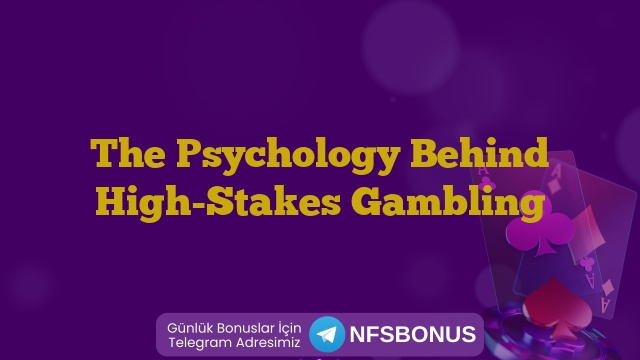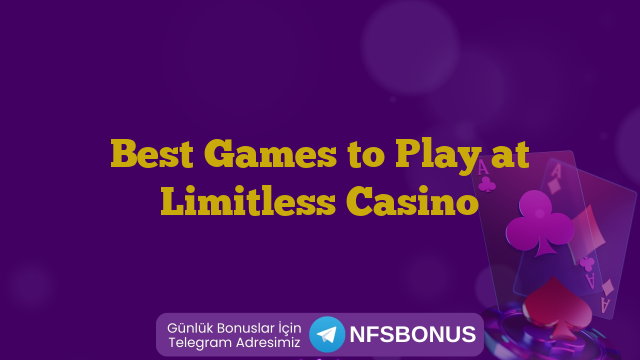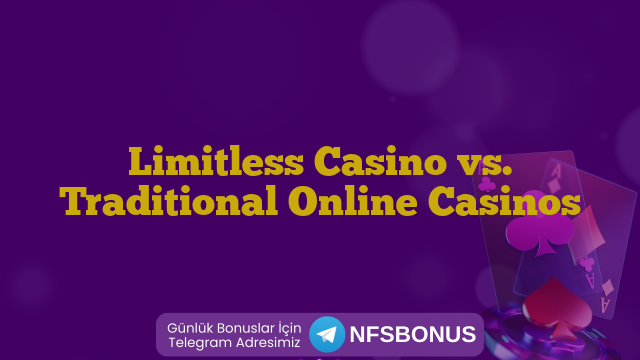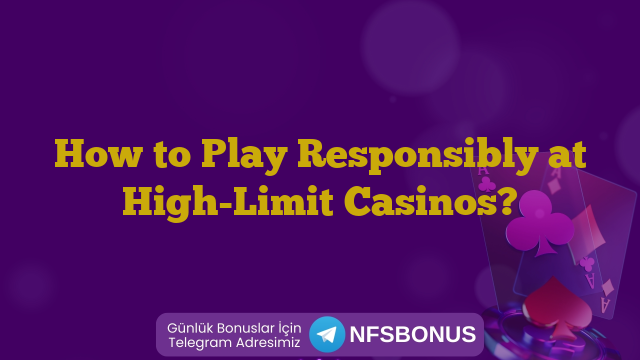This blog post delves into the psychology behind high-stakes gambling, exploring key concepts and factors that influence gamblers’ decisions. It begins with an overview of high-stakes gambling and examines psychological elements that drive individuals to engage in this risky behavior. The article highlights the intricacies of risk and reward, as well as cognitive biases that skew decision-making processes in gambling scenarios. Additionally, it discusses how stress impacts gambling behavior and offers strategies to manage gambling addiction effectively. Social influences are also analyzed for their role in shaping gambling habits, with signs of problem gambling outlined for awareness. Finally, the post provides key takeaways on the psychology of gambling while hinting at future trends and insights in the gambling landscape. Overall, this comprehensive examination offers valuable insights into the complex psychological factors at play in high-stakes gambling.
Understanding The Basics Of High-Stakes Gambling
The world of high-stakes gambling is not just about luck and chance; it delves deep into the intricate realm of The Psychology of human behavior. To fully comprehend how individuals engage in this form of gambling, one must consider the psychological factors that compel them to take significant risks. Gamblers are often swayed by various emotional and cognitive factors, including thrill-seeking behavior, cognitive biases, and the influence of their social environment.
Moreover, high-stakes gambling triggers a unique psychological experience for players. The adrenaline rush and intense emotions associated with large bets can lead to an altered state of consciousness. For many, this blend of exhilaration and tension transforms a regular game into a captivating experience. Understanding these elements provides valuable insight into why individuals are drawn to high-stakes gambling, often despite the potential risks involved.
- Key Types Of High-Stakes Gambling
- High Roller Casinos
- Private Poker Games
- Sports Betting
- Online High-Stakes Tournaments
- Luxury Casino Resorts
- Secretive Underground Games
It’s essential to recognize that the allure of high-stakes gambling is deeply intertwined with the concepts of risk and reward. Players often perceive larger bets as an opportunity to achieve a significant win, which can further strengthen their urge to play. The environment where gambling occurs, combined with personal motivations, can create a powerful cocktail of psychological influences that hold gamblers captive. This phenomenon can result in challenges such as addiction or problematic behaviors, emphasizing the urgent need for effective management strategies.
Understanding the core psychological aspects of high-stakes gambling can be crucial in developing safe practices and fostering responsible gambling habits.
In conclusion, the examination of The Psychology behind high-stakes gambling reveals a complex web of emotional, cognitive, and social factors. Key insights into why individuals engage in such risky behavior can guide interventions aimed at reducing potential harm and promoting healthier gambling experiences. As we navigate this compelling landscape, it becomes increasingly important to approach high-stakes gambling with a critical understanding of the psychological drivers involved.
Exploring The Psychological Factors That Drive Gamblers
The world of gambling is not solely governed by chance; rather, it is influenced significantly by the psychology of the players. Understanding these psychological elements is essential for recognizing what compels individuals to engage in high-stakes gambling. Many gamblers exhibit a combination of motivations, perceptions, and emotional responses that create a complex psychological backdrop. These elements can vary widely from one individual to another, highlighting the diverse nature of gambling behavior.
Among the most crucial psychological factors are the perceptions of risk and reward. Players often become fixated on potential gains, leading to a distorted sense of reality. The thrill of winning can overshadow the risks involved, causing individuals to underestimate their chances of loss. Additionally, cognitive biases play a significant role; for instance, the illusion of control can make gamblers believe they can influence the game outcome, which significantly impacts their decision-making process.
Factors Influencing Gambling Behavior
- Perception of risk versus reward
- Cognitive biases, such as the illusion of control
- Emotional responses to winning and losing
- Environmental cues promoting gambling activities
- Peer influence and social acceptance
- Personal traits, such as impulsivity and competitiveness
- Addictive tendencies that may exist prior to gambling
Furthermore, emotional regulation significantly influences gambling behavior. Many gamblers use gambling as an escape mechanism or a form of stress relief. This tendency can lead to a cyclical pattern of behavior, where losses are often justified in the pursuit of recovering lost funds. The emotional highs and lows can become addictive, further entrenching individuals in their gambling habits. Recognizing these psychological factors not only aids in understanding gamblers but also provides insights into potential interventions and support mechanisms for those struggling with gambling addiction.
The Psychology Of Risk And Reward In Gambling
Understanding The Psychology behind high-stakes gambling involves a complex interplay of cognitive and emotional factors that affect how individuals perceive risk and reward. The thrill of gambling often stems from the anticipation of winning, which can lead to a heightened state of excitement. However, this excitement is frequently accompanied by the fear of losing, creating a psychological tug-of-war that can influence a gambler’s decision-making process. This duality of risk versus reward is a fundamental aspect of the gambling experience and shapes an individual’s approach toward betting.
At the core of high-stakes gambling lies the concept of risk versus reward, where individuals assess the potential gains against the likelihood of loss. Various factors contribute to how a gambler evaluates these two aspects, including personal experiences, perceived control, and societal influences. Some may exhibit a propensity for risk, driven by the potential for significant financial windfalls, while others may adopt a more cautious approach, weighing possible losses more heavily. Understanding these individual differences is crucial for grasping the broader implications of gambling behavior.
- Benefits And Drawbacks Of High-Stakes Gambling
- Opportunity for substantial financial gain
- Heightened excitement and adrenaline rush
- Potential for social interaction and networking
- Increased risk of addiction and related issues
- High financial losses leading to stress
- Neglect of personal relationships and responsibilities
- Impact on mental health, including anxiety and depression
The Psychology also plays a critical role in how emotions are processed during gambling. Participants often want to experience the thrill of winning, yet they must also navigate the profound emotional responses that accompany losses. It’s not unusual for gamblers to experience a flood of adrenaline when they win and feelings of despair or anxiety when they lose. These emotional reactions can further complicate decision-making and influence future gambling behaviors.
Analyzing Risk Versus Reward
When analyzing the relationship between risk and reward, it becomes evident that personal biases and perceptions can significantly skew an individual’s assessment. Many gamblers often fall prey to cognitive distortions, such as the gambler’s fallacy, where they believe that past outcomes will influence future ones. This flawed logic can exacerbate their willingness to take risks, impacting their overall gambling strategy and financial decisions.
Emotional Responses To Wins And Losses
The various emotional responses to wins and losses not only affect gambling behavior in the moment but can lead to longer-term psychological impacts. Wins can engender a sense of invulnerability, while consecutive losses might trigger feelings of hopelessness or depression. It’s essential for gamblers to recognize these emotional patterns and their effects on gambling to foster healthier and more responsible gaming habits.
Cognitive Biases That Affect Gambling Decisions
Understanding the role of cognitive biases is essential to comprehending The Psychology behind high-stakes gambling. These biases can cloud judgment and influence decision-making, often leading to irrational choices that can have severe financial consequences. By recognizing these cognitive distortions, gamblers can better navigate their thought processes and improve their decision-making capabilities.
One significant aspect to consider is how these biases are deeply intertwined with emotional responses. Gamblers frequently face high-pressure situations that can exacerbate their reliance on cognitive shortcuts rather than analytical thought. Notably, this reliance can lead to a variety of common biases that skew reality and enhance the gambler’s sense of control over their outcomes.
In gambling, clarity of thought is essential, yet cognitive biases often distort perception and lead to aggressive or reckless behavior.
Common Cognitive Biases In Gambling
- Confirmation Bias: The tendency to search for and prioritize information that confirms one’s preexisting beliefs.
- Illusory Superstitions: The belief that certain behaviors or rituals can influence outcomes, even in games of chance.
- Overconfidence Effect: An inflated belief in one’s ability to predict outcomes or make successful bets.
- Gambler’s Fallacy: The belief that past events affect the probability of future events in random sequences.
- Anchoring: Relying heavily on the first piece of information encountered, which can skew subsequent judgments.
- Loss Aversion: A stronger emotional reaction to losses than to gains, often leading to riskier choices to recover losses.
- Optimism Bias: The belief that one is less likely to experience a negative outcome compared to others.
Addressing these biases is crucial for improving gambling behavior. Awareness of these cognitive distortions can serve as a foundation for more rational decision-making. As we explore the specific cognitive biases that often lead gamblers astray, it becomes evident that they can stem from both psychological tendencies and emotional responses.
Confirmation Bias
Confirmation bias plays a pivotal role in gambling decisions. Gamblers often seek out information that supports their prior beliefs—such as favoring results from personal luck or strategies they believe to be successful. This bias can lead to an accumulation of evidence that overlooks opposing viewpoints or failures, reinforcing a mindset that may not reflect reality.
Illusory Superstitions
Illusory superstitions are another common cognitive bias that affects gambling choices. Many gamblers develop rituals or beliefs that they feel can influence the outcome of a game. These beliefs can lead to a false sense of control, where individuals think their actions can sway luck, ultimately impacting their decision-making processes.
The Impact Of Stress On Gambling Behavior
The Psychology of gambling is deeply intertwined with how stress influences a gambler’s choices and behaviors. High-stakes gambling often brings about intense emotional states, making it essential to understand the psychological mechanisms at play. When under stress, individuals may experience heightened anxiety and pressure, which can distort their decision-making abilities. This intricate relationship highlights the need for awareness of how stressors contribute to gambling outcomes.
Stress can trigger various responses, leading gamblers to make impulsive or risky bets in hopes of alleviating their psychological discomfort. Many turn to gambling as a coping mechanism, believing they can regain control over their situation. However, this often leads to a detrimental cycle where temporary relief is followed by increased stress, ultimately exacerbating gambling behaviors. It is essential to recognize that this cycle can create a perilous addiction pattern.
Physical And Emotional Reactions To Gambling Stress
- Increased heart rate
- Heightened anxiety levels
- Difficulty concentrating
- Feelings of guilt or regret
- Impulsive decision-making
- Social withdrawal or isolation
- Heightened sense of urgency
Understanding these physical and emotional reactions is vital for gamblers and their families. Recognizing these signs can facilitate better coping strategies and interventions. For instance, gamblers who observe these stress-induced reactions in themselves can benefit from implementing relaxation techniques or seeking professional help to address their gambling behavior more effectively. By doing so, they can disrupt the cycle of stress and gambling, paving the way for healthier choices in the future.
Strategies To Manage Gambling Addiction Effectively
Effective management of gambling addiction involves a comprehensive approach that addresses both the psychological and behavioral aspects of this complex issue. Understanding The Psychology behind gambling is crucial; it sheds light on the motivations and triggers that compel individuals to gamble, often leading to addiction. By utilizing a variety of strategies, individuals can regain control over their gambling habits and foster a healthier relationship with this activity.
To begin effectively managing gambling addiction, it’s essential to develop a personalized plan that incorporates various coping mechanisms and support systems. This plan can include therapy sessions, participation in support groups, and the establishment of clear limits regarding gambling activities. Engaging with a therapist can help individuals to explore their emotional triggers and cognitive distortions that contribute to their gambling behavior.
“By confronting the underlying issues related to gambling, individuals can significantly lessen their urge to gamble and develop healthier habits.”
Here are some important Steps To Address Gambling Addiction:
- Recognize and acknowledge the problem.
- Seek professional help from a therapist or counselor.
- Explore support groups such as Gamblers Anonymous.
- Set strict limits on gambling duration and expenditure.
- Identify triggers and develop strategies to avoid them.
- Incorporate alternative activities to replace gambling.
- Monitor progress and celebrate small victories.
By following these steps, individuals can gradually learn to manage their gambling urges more effectively. It is important to remember that recovery from gambling addiction is a journey that requires patience and dedication. Utilizing a multifaceted strategy not only helps in reducing gambling behavior but also enriches one’s overall mental health and well-being.
How Social Influences Shape Gambling Habits
In the world of gambling, social influences play a critical role in shaping an individual’s behavior and choices. Understanding these dynamics is essential when analyzing The Psychology behind high-stakes gambling. Gamblers are often influenced by their peers, cultural backgrounds, and societal attitudes towards gaming, which can significantly affect their gambling habits and tendencies.
One significant factor is the concept of peer pressure. Individuals may find themselves engaging in gambling activities to fit in or gain approval from their social circles. This inclination can lead to increased participation in gambling, especially in environments where gambling is celebrated. When surrounded by friends or colleagues who gamble, the urge to join them can overshadow personal reservations regarding the activity.
Peer Pressure
Peer dynamics can foster both positive and negative behaviors in gambling. For instance, many individuals experience a desire to prove themselves in front of friends, leading them to take risks they normally wouldn’t consider alone. As a result, peer pressure can act as a double-edged sword, enhancing the excitement of gambling but also pushing individuals toward excessive gambling without reflecting on the potential consequences.
- Social Factors Influencing Gambling
- Encouragement from friends or family members
- Social gatherings centered around gambling events
- Influence of social media and online gambling communities
- Cultural celebrations that promote gambling activities
- Perception of gambling as a thrilling social experience
- Availability of gambling venues in the community
- Peer endorsement of gambling wins or losses
Another vital aspect is the cultural views on gambling, which can vary significantly across different societies. Some cultures embrace gambling as a form of entertainment, while others may consider it taboo or morally wrong. These perspectives can heavily influence individual gambling habits, encouraging or discouraging participation based on societal norms.
Cultural Views On Gambling
Understanding these cultural attitudes is essential for comprehending how gambling is perceived on a broader scale. In cultures that tolerate or celebrate gambling, individuals may develop a more accepting and normalized attitude towards wagering. Conversely, in environments where gambling is stigmatized, individuals may internalize negative beliefs, leading to feelings of guilt or shame if they choose to gamble. Consequently, these cultural frameworks can create contrasting views on gambling that directly shape behavioral outcomes.
Recognizing The Signs Of Problem Gambling
Understanding the psychological underpinnings of gambling behavior can shed light on why some people develop problematic gambling habits. Recognizing these patterns early can be crucial for preventing the escalation into addiction. Signs of trouble are often subtle at first but can evolve into more noticeable issues over time. Therefore, being aware of them is essential for both gamblers and their loved ones.
One of the key aspects in identifying problem gambling is acknowledging the emotional factors at play. Many individuals may gamble to escape negative emotions or life’s pressures, which can lead to a vicious cycle of increased stakes and heightened stress. Therefore, it is crucial to observe behaviors and emotional states to understand the implications of gambling activities better.
Effective recognition of gambling addiction signs can save not only financial stability but also relationships and mental health.
Warning Signs Of Gambling Addiction are imperative for anyone involved in high-stakes gambling. They empower individuals to seek help when it’s most necessary. Here is a concise list of some warning signs:
- Frequent thoughts about gambling, even during non-gambling activities.
- Inability to limit or control gambling activities.
- Increased amounts of money or time spent on gambling.
- Neglecting responsibilities or important activities due to gambling.
- Experiencing withdrawal symptoms, such as anxiety or irritability, when not gambling.
- Chasing losses in an attempt to recover lost money.
- Disregarding the impact of gambling on relationships and personal life.
Awareness of these signs is more than just a caution; it’s about fostering an environment where individuals can make informed decisions about their gambling behaviors. If you suspect that you or someone you know is struggling with gambling, seeking support can be the first step toward recovery and healthier behaviors.
Key Takeaways From The Psychology Of Gambling
Understanding The Psychology behind gambling allows us to grasp the complex interplay between emotional triggers and decision-making processes. High-stakes gambling is not just about chance; it’s also deeply rooted in psychological dynamics that can influence behaviors significantly. Gamblers often find themselves wrestling with cognitive biases, emotional highs, and the magnetic pull of risk, which together shape the gambling experience.
The intricacies of The Psychology of gambling highlight the essential factors that compel individuals to partake in risky bets. For instance, those drawn to high-stakes scenarios are often led by a mixture of thrill-seeking behavior and the allure of substantial monetary rewards. Understanding these motivations can help improve decision-making and foster a healthier approach to gambling.
Actionable Tips For Better Gambling Decisions
- Set strict budgets for each gambling session.
- Avoid gambling when feeling emotional or stressed.
- Take regular breaks to reassess your strategy.
- Keep track of wins and losses to maintain perspective.
- Educate yourself about the odds and probabilities involved.
- Engage in self-reflection to understand your motivations.
- Seek support from friends or professionals if needed.
By implementing these strategies, gamblers can create a more responsible gambling environment, which can potentially minimize harmful behaviors. Ultimately, understanding The Psychology behind gambling not only aids in making better choices but also encourages more informed discussions surrounding gambling culture and its societal impacts.
The Future Of Gambling: Trends And Insights
Understanding The Psychology behind high-stakes gambling is essential for grasping why certain individuals are drawn to this thrilling activity. One of the primary factors influencing gamblers’ behavior is the perception of risks and rewards. Gamblers often exhibit a unique mindset that propels them towards taking significant risks, driven by a mixture of emotional and cognitive factors. The excitement linked with potentially life-changing wins can create an irresistible allure, making the gambling experience increasingly compelling.
As we delve deeper into The Psychology of high-stakes gambling, it becomes clear that cognitive biases play a crucial role. Gamblers frequently fall victim to the illusion of control, believing they can influence outcomes through skill or luck. This leads to overconfidence in their decision-making, often resulting in continued play even after significant losses. Furthermore, the availability heuristic affects how individuals see their chances of winning; recent victories become more salient, skewing their perception of risk and reward.
The mindset of high-stakes gamblers is influenced by a blend of cognitive biases and emotional responses that often lead to problematic gambling behaviors.
High-stakes gambling also affects individuals’ emotional states, increasing levels of stress and excitement simultaneously. Stress can result in impaired decision-making and a tendency to gamble more aggressively. Understanding how these emotional responses intertwine with gambling behavior is vital for those studying the field. Recognizing these psychological factors can help establish a framework for effective strategies to manage gambling addiction.
Emerging Trends In High-Stakes Gambling:
- Increased Use of Technology: Virtual reality and augmented reality are set to transform the gaming experience.
- Data Analytics: Gamblers are leveraging big data to refine their strategies.
- Social Gambling Platforms: Online social interactions are becoming integral to the gambling experience.
- Focus on Responsible Gambling: Operators are prioritizing measures to encourage responsible play.
- Cryptocurrency Payments: The acceptance of cryptocurrencies is gaining traction, offering anonymity and flexibility.
- Regulatory Changes: Evolving laws are shaping how casinos and online platforms operate.
- Gamification Elements: Incorporating game-like features into gambling experiences enhances player engagement.
In summary, comprehending The Psychology of high-stakes gambling remains a dynamic and evolving field. By examining the interplay of cognitive biases, emotional factors, and emerging trends, stakeholders can develop more effective strategies to support responsible gambling practices and address issues related to gambling addiction. Understanding these psychological underpinnings is paramount as the gambling industry continues to evolve.
Frequently Asked Questions
What are the basic principles of high-stakes gambling?
High-stakes gambling involves betting large sums of money, where the financial risks and potential rewards are significantly increased. Understanding the strategies, odds, and emotional responses associated with such gambling is essential for grasping its complexities.
What psychological factors contribute to a person’s decision to gamble high-stakes?
Psychological factors such as thrill-seeking behavior, the desire for social status, and escape from reality often drive individuals toward high-stakes gambling. Additionally, a sense of control and the adrenaline rush can reinforce these behaviors.
How does the psychology of risk and reward work in gambling contexts?
The psychology of risk and reward in gambling is rooted in how individuals perceive potential gains versus losses. Gamblers may focus on the excitement of winning and downplay the risks of losing, which can lead to compulsive betting behavior.
What are some cognitive biases that impact gambling decisions?
Cognitive biases such as the illusion of control, gambler's fallacy, and confirmation bias can significantly influence gambling decisions. These biases can lead gamblers to make irrational choices, believing they have more control over outcomes than they actually do.
How does stress affect gambling behavior?
Stress can lead to both increased and decreased gambling behavior. Some individuals gamble to cope with stress, viewing it as an escape, while others may experience heightened decision-making mistakes under pressure, leading to impulsive gambling.
What strategies can be employed to manage gambling addiction effectively?
Effective strategies to manage gambling addiction include setting strict limits on spending, seeking professional help, engaging in support groups, and practicing mindfulness techniques to increase awareness of triggers and impulses.
In what ways do social influences shape gambling habits?
Social influences play a significant role in shaping gambling habits as peer pressure, social norms, and community acceptance can encourage individuals to engage in gambling behaviors. Social settings, like casinos or online gambling platforms, can amplify these influences.
What are the signs that someone may have a problem with gambling?
Signs of problem gambling include preoccupation with gambling, spending more money than intended, hiding gambling activity from others, and experiencing negative emotions when not gambling. Recognizing these signs is crucial for seeking help.





